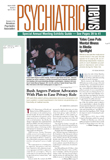Are long-acting stimulants as effective as short-acting ones for treating attention-deficit/hyperactivity disorder (ADHD)? What is the maximum daily stimulant dose for a child with ADHD? These and other clinical questions are addressed in a new practice parameter by the American Academy of Child and Adolescent Psychiatry on the use of stimulant medications.
The authors are child and adolescent research psychiatrists Lawrence Greenhill, M.D., of the New York State Psychiatric Institute at Columbia University; Steven Pliszka, M.D., of the University of Texas Health Sciences Center at San Antonio; and Mina Dulcan, M.D., of Northwestern Medical School in Chicago.
They reviewed the vast amount of literature on the clinical use of four stimulants between 1980 and 2000 and drew on their own experience, according to the parameter. The four stimulants are methylphenidate (MPH), dextroamphetamine (DEX), mixed salts amphetamine (AMP), and pemoline (PEM).
Although MPH is the most well-researched and widely prescribed stimulant, the parameter mentions that the four stimulants are equally effective in school-age children, with approximately a 70 percent response rate. However, the use of pemoline is not recommended because research has shown a high rate of liver failure.
The pharmacological effects of the different medications, the disorders and conditions that have responded well to stimulants, and conditions that contraindicate their use are all discussed in the parameter. The criteria for making a diagnosis of ADHD and starting stimulant medications are also described.
Issues such as titration and fixed dosing are discussed, and a helpful table lists initial weekly doses by medication, follow-up needed, and clinical measurements. Another table lists rating scales for assessing ADHD and monitoring effects of stimulant medications.
Long-acting versions of MPH including Ritalin SR20 and newcomer Concerta MPH are discussed in the parameter, as are the pros and cons of short-acting stimulants. Pliszka told Psychiatric News that “research on Adderall XR was not available when the guideline was finalized in 2001.” The FDA approved the long-acting drug in August 2001 and Concerta in January 2001.
The bulk of clinical trials have been short term, the parameter points out, with the exception of four recent randomized controlled studies that lasted between 12 and 24 months. “Collectively, these long-term studies show a persistence of medication effects over time,” according to the parameter.
Greenhill told Psychiatric News that more research is needed to study the long-term effects of stimulants on the academic and social skills of children with ADHD.
The parameter indicates that conditions that are comorbid with ADHD, specifically conduct and anxiety disorders, have responded to stimulant medications. Stimulant medications have also been found to improve narcolepsy as well as apathy and depression in medically ill patients, according to the parameter.
Because children as young as age 3 can have symptoms of ADHD, and adults are increasingly being diagnosed with ADHD, the results of the research on these age groups is presented, even though it is limited. Only five controlled studies of stimulants in preschoolers and nine controlled studies of stimulants in adults were published by 1996. In contrast, 157 controlled studies of school-aged children and adolescents were published by 1996, according to the parameter.
The parameter touches on the use of generic versions of brand-name stimulant medications. “Only one study, published in 1998, compared a generic with a brand stimulant. The results showed that the generic version of methylphenidate was absorbed more quickly and peaked sooner than Ritalin,” said Greenhill.
Does the use of stimulant medications lead to substance abuse as some critics of these medications have suggested? Two studies are mentioned in the parameter that show that adolescents with ADHD treated with stimulants were less likely to abuse substances than adolescents with ADHD not being treated with stimulant medications.
However, parents and other family members may abuse a child’s stimulant medications, states the parameter, so “it is important to ask whether anyone in the house has a problem with substance abuse.”
The parameter on the use of stimulant medications was published in the February 2002 supplement of the Journal of the American Academy of Child and Adolescent Psychiatry. The full version is available to AACAP members free at http://office.aacap.org/eseries/ScriptContent/Index.cfm. Ordering information is available at www.aacap.org/publications/pubcat/guideline.htm or by phone at (800) 333-7636 ext.131. ▪
